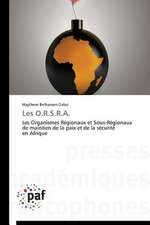Private Sector Environmental Information and the Law: Routledge Research in International Environmental Law
Autor Juliana Zuluaga Madriden Limba Engleză Paperback – 18 dec 2024
| Toate formatele și edițiile | Preț | Express |
|---|---|---|
| Paperback (1) | 311.14 lei 6-8 săpt. | |
| Taylor & Francis – 18 dec 2024 | 311.14 lei 6-8 săpt. | |
| Hardback (1) | 1009.28 lei 6-8 săpt. | |
| Taylor & Francis – 28 iul 2023 | 1009.28 lei 6-8 săpt. |
Din seria Routledge Research in International Environmental Law
-
 Preț: 311.62 lei
Preț: 311.62 lei -
 Preț: 326.36 lei
Preț: 326.36 lei - 13%
 Preț: 296.73 lei
Preț: 296.73 lei - 18%
 Preț: 1006.07 lei
Preț: 1006.07 lei -
 Preț: 436.14 lei
Preț: 436.14 lei -
 Preț: 416.22 lei
Preț: 416.22 lei -
 Preț: 389.38 lei
Preț: 389.38 lei -
 Preț: 389.66 lei
Preț: 389.66 lei -
 Preț: 389.38 lei
Preț: 389.38 lei - 25%
 Preț: 766.65 lei
Preț: 766.65 lei -
 Preț: 329.06 lei
Preț: 329.06 lei - 12%
 Preț: 299.45 lei
Preț: 299.45 lei -
 Preț: 424.16 lei
Preț: 424.16 lei - 12%
 Preț: 299.03 lei
Preț: 299.03 lei -
 Preț: 416.22 lei
Preț: 416.22 lei - 18%
 Preț: 1000.27 lei
Preț: 1000.27 lei -
 Preț: 415.67 lei
Preț: 415.67 lei - 17%
 Preț: 270.82 lei
Preț: 270.82 lei -
 Preț: 432.29 lei
Preț: 432.29 lei -
 Preț: 489.26 lei
Preț: 489.26 lei - 18%
 Preț: 1067.35 lei
Preț: 1067.35 lei - 17%
 Preț: 246.49 lei
Preț: 246.49 lei - 12%
 Preț: 300.09 lei
Preț: 300.09 lei - 15%
 Preț: 420.20 lei
Preț: 420.20 lei - 8%
 Preț: 326.01 lei
Preț: 326.01 lei -
 Preț: 108.70 lei
Preț: 108.70 lei -
 Preț: 461.66 lei
Preț: 461.66 lei - 18%
 Preț: 1054.27 lei
Preț: 1054.27 lei - 16%
 Preț: 262.75 lei
Preț: 262.75 lei - 13%
 Preț: 322.56 lei
Preț: 322.56 lei - 18%
 Preț: 1065.06 lei
Preț: 1065.06 lei - 18%
 Preț: 1065.06 lei
Preț: 1065.06 lei - 18%
 Preț: 1069.71 lei
Preț: 1069.71 lei
Preț: 311.14 lei
Nou
Puncte Express: 467
Preț estimativ în valută:
59.54€ • 61.81$ • 49.65£
59.54€ • 61.81$ • 49.65£
Carte tipărită la comandă
Livrare economică 22 martie-05 aprilie
Preluare comenzi: 021 569.72.76
Specificații
ISBN-13: 9781032310145
ISBN-10: 1032310146
Pagini: 288
Dimensiuni: 156 x 234 x 16 mm
Greutate: 0.43 kg
Editura: Taylor & Francis
Seria Routledge Research in International Environmental Law
ISBN-10: 1032310146
Pagini: 288
Dimensiuni: 156 x 234 x 16 mm
Greutate: 0.43 kg
Editura: Taylor & Francis
Seria Routledge Research in International Environmental Law
Cuprins
Acknowledgements
List of acronyms and abbreviations
List of acronyms and abbreviations
- Introduction
- Why now?
- Background and scope
- Normative Framework
- Preliminary Notions of the Right to Know and the Private Sector
- Legal and Historical Precedents of Access to Environmental Information
- Transition to democratic state models
- The transparency trend
- ‘Information governance’ and environmental reform
- The evolution of human rights theory
- Fundamental notions of Private Entities
- Public v Private
- Definition of Private Entities
- Public and Private Information
- The protection of business confidentiality
- The Aarhus Convention: Fundamental concepts and contribution
- Environmental Participation under Aarhus
- Contribution and innovative features
- Legal and Historical Precedents of Access to Environmental Information
- Characterisation of the Right to Access Environmental Information
- Recognition of the right to information as a human right
- The Right to Access Environmental Information in International Law
- Influence of International Law in regional and national jurisdictions
- Statutory and constitutional recognition of the right to information
- The right of access to environmental information at national level
- Systems for public participation in environmental matters
- Recognition of the right to information as a human right
- Scope of the Laws providing Access to Information
- Scope of beneficiaries: Is access to information provided without discrimination and without having to state an interest?
- Material scope: What information can be accessed?
- Data, information and knowledge
- Restrictions based on format
- The definition of ‘Environmental Information’
- Access to ‘relevant’ environmental information in decision-making processes
- Scope of obligated subjects
- Scope of exempted information
- Access to Private Sector Environmental Information
- Why increase access to private sector environmental information?
- Indirect access through public authorities
- Active disclosure: from the private duty to report to the public obligation to inform
- Passive access: Indirect access by request to a public authority
- Direct access to environmental information held by private entities
- Private entities included in the definition of ‘public authorities’
- Private entities not included in the definition of ‘public authorities’
- Private entities active disclosure
- The Protection of Trade Secrets and ‘Confidential Business Information’
- Why is business confidentiality worthy of protection?
- Defining ‘confidential business information’
- The logic behind the protection of CBI
- Trade secrets as property
- Trade secrets as Intellectual Property
- Trade secrets as Human Rights
- Statutes for the protection of CBI
- Trade secrets under international law
- CBI protection and national level
- CBI not qualifying as trade secrets or IP
- Types of CBI and trade secrets with special protection
- Protection of CBI and trade secrets via exceptions to disclosure
- Access to information about emissions into the environment according to the CJEU
- Problems of the System for Access to Private Sector Information
- Shortcomings of the public/private divide for access to environmental information
- No clear criteria to assimilate private entities to public authorities
- Deficiencies of corporate transparency
- The organic focus of access laws
- Overlapping between the definitions of ‘environmental information’ and ‘confidential business information’
- Cost-benefit analysis and other financial information
- Technical information about hazardous activities or products
- Chemical substances
- Health and safety data
- Environmental Impact Assessments and other relevant information on specific projects
- Geotechnical information and natural resource’s locations
- Inconsistencies in the applicable laws
- The current toolbox for solving conflicts between access to environmental information and the protection of CBI
- Shortcomings of the public/private divide for access to environmental information
- Proposal to Reform Access to Environmental Information
- Matrix of Values
- Integrated contextual analysis instead of ‘balancing of interests’
- Conclusions and Recommendations
- Colombia
- The US
- The EU
Notă biografică
Juliana Zuluaga-Madrid holds a PhD in Law and an LLM in Energy and Environmental Law. She has worked for companies in the mining sector, Oil & Gas and is currently Legal Director at INGEMA S.A, a company in the energy sector. She combines her legal practice with academic engagements as lecturer and research advisor for Universidad del Rosario (Bogotá).














